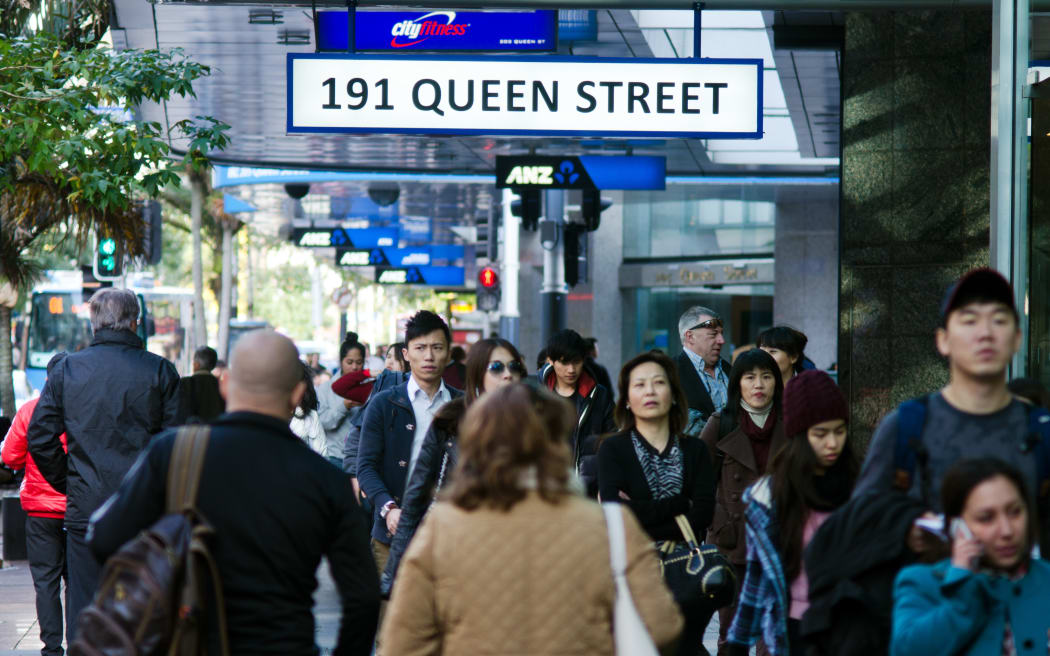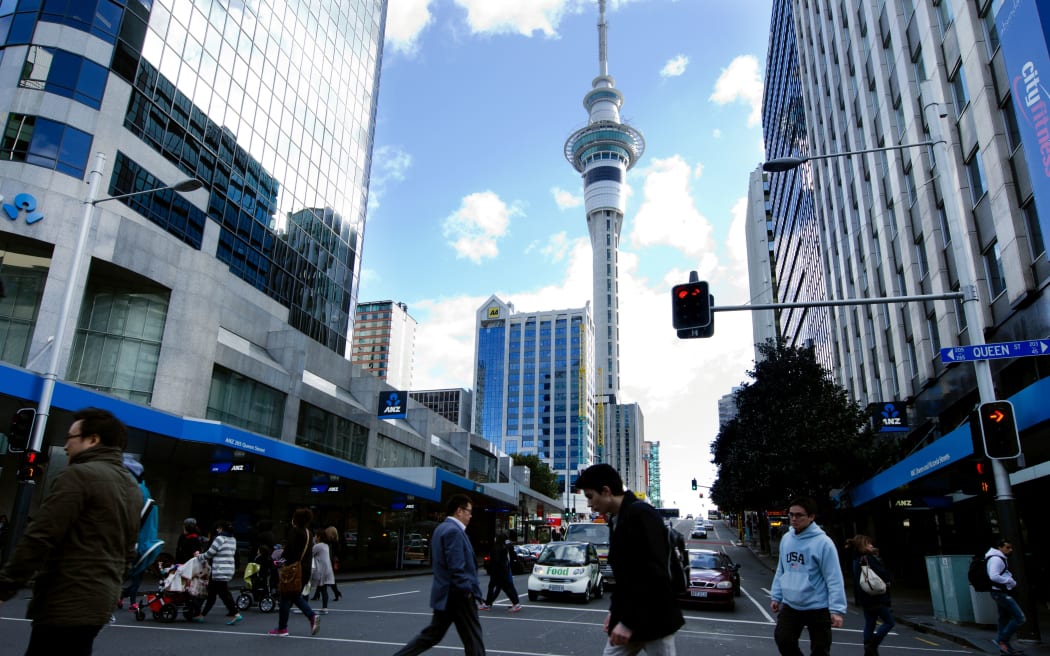
Auckland is experiencing rapid population increases due to immigration. Photo: 123RF
Analysis - Record immigration will put pressure on New Zealand's population, infrastructure and productivity - where's the election debate?
The concerns of various pundits and politicians earlier this year that New Zealand might struggle to attract immigrants turned out to be premature.
In fact, the country's population has been boosted to the extent it should be a bigger election issue than it is.
In the 12 months to July, total permanent migrant arrivals were 208,400 - exceeding previous levels by quite a margin. Accounting for permanent departures, the net population gain from immigrants has been 96,200.
That breaks all previous records, and even accounts for a return to the consistent pattern of a net loss of New Zealand citizens (39,500 in the same period). There is every indication the country will hit an annual net gain of 100,000 people.
At this rate, inward migration will provide a net annual population gain of 2 percent for 2023. Once natural increase is added (births over deaths being more than 20,000 a year), the overall rate will be around 2.3 percent to 2.4 percent. By contrast, the OECD average is less than 0.5 percent.
Auckland is beginning another period of rapid population growth, reversing the decline seen in 2021. The city's growth accounts for around half of the country's total net migration gain. Combined with a natural increase of around 7000 to 8000, it means the city will have significant population growth, even allowing for a net migration loss to other regions.
Some of this surge can be explained by the return to relative normal after pandemic restrictions were lifted. But there are a range of other factors pushing people to New Zealand, including anti-immigrant politics and general disenchantment in other countries.
New Zealand is seen as a desirable destination. In a recent United States survey, Americans ranked New Zealand second on their list of "best countries" - ahead of the US itself.

Auckland accounted for about half of Aotearoa's total net migration gain. Photo: 123rf.com
Immigration and productivity
In 2021, at the request of the finance minister, the Productivity Commission examined the ways immigration settings would contribute to the "long-term prosperity and wellbeing" of the country.
The Immigration - Fit for the Future report released in 2022 provided a complete review of the data and issues. While it indicated that immigration and immigrants have positive effects and outcomes for New Zealand, it also pointed to a lack of consistency and strategy, and little public accountability.
Key findings included what the commission referred to as "an infrastructure deficit" as investment failed to keep up with population growth. It also described a "reliance risk" on migrant labour that had "negative consequences on innovation and productivity".
In the trade-off between a reliance on migrant labour or investing in new technologies, the concern is that migrant labour presents an easy win, with little incentive for employers to innovate.
Yet the significant implications of the current immigration surge for planning and productivity are noticeably absent from this election campaign.
The missing election issue
Mostly, the main parties are positive about the role and contribution of immigrants (unlike some countries where anti-migrant sentiment has been rising). But the parties are also mainly concerned with policy detail, not the bigger picture.
Labour, National, ACT and the Greens all propose family and parent visas. This is to be welcomed, as migration works best when extended families are involved. And there is a general recognition that talent recruitment needs more attention.
Specifically, Labour wants Pasifika and other migrants who have been in New Zealand for ten years or more to gain residency. The Greens propose a review of refugee and asylum-seeker policy. National wants a new visa category for highly educated migrants. And ACT would require a regulatory impact analysis for all immigration policy.
For its part, New Zealand First refers back to its policies from the 2020 election. This includes statements about the negative impact of "cheap labour undermining New Zealand's pay and conditions", something the Productivity Commission found little evidence of.
But the party also suggested greater attention should be given to a more regionally dispersed population and the establishment of a 30-year population plan. Somewhat by default, then, New Zealand First highlights the gaps in other parties' policy recommendations.

Professor Paul Spoonley works in the College of Humanities and Social Sciences at Massey University. Photo: RNZ
Where is the population strategy?
A more robust and constructive election debate would have addressed those big gaps more directly.
What should be New Zealand's annual target for migrants, both permanent and temporary? How do we meet the challenges created by the current high volume, including the processing of applications, potential for migrant exploitation, and the stress on services and infrastructure?
More broadly, shouldn't we be looking at immigration policy in the context of all the elements in play? This would mean factoring in the rapid ageing of the population, declining fertility and different regional demographic trajectories (with some places experiencing population stagnation or decline).
Asked in a recent radio interview about the housing and infrastructure challenges of immigration and record population growth, National leader (and potentially next prime minister) Christopher Luxon argued the numbers were a "catch-up" from the Covid years:
This only emphasises the lack of a genuine national plan. Now that the workers kept out by Covid are flowing into the country in large numbers, the Productivity Commission's observations and suggestions are more relevant than ever.
Otherwise, New Zealand risks allowing immigration to be the default answer to much harder questions about innovation, productivity and the development of a long-term population strategy.
*Paul Spoonley is a distinguished professor at the College of Humanities and Social Sciences, Massey University. Disclosure statement: He has received funding from MBIE to research migrant flows and the impacts of diversity. This research ended in 2021.
- This story was originally published by The Conversation.







